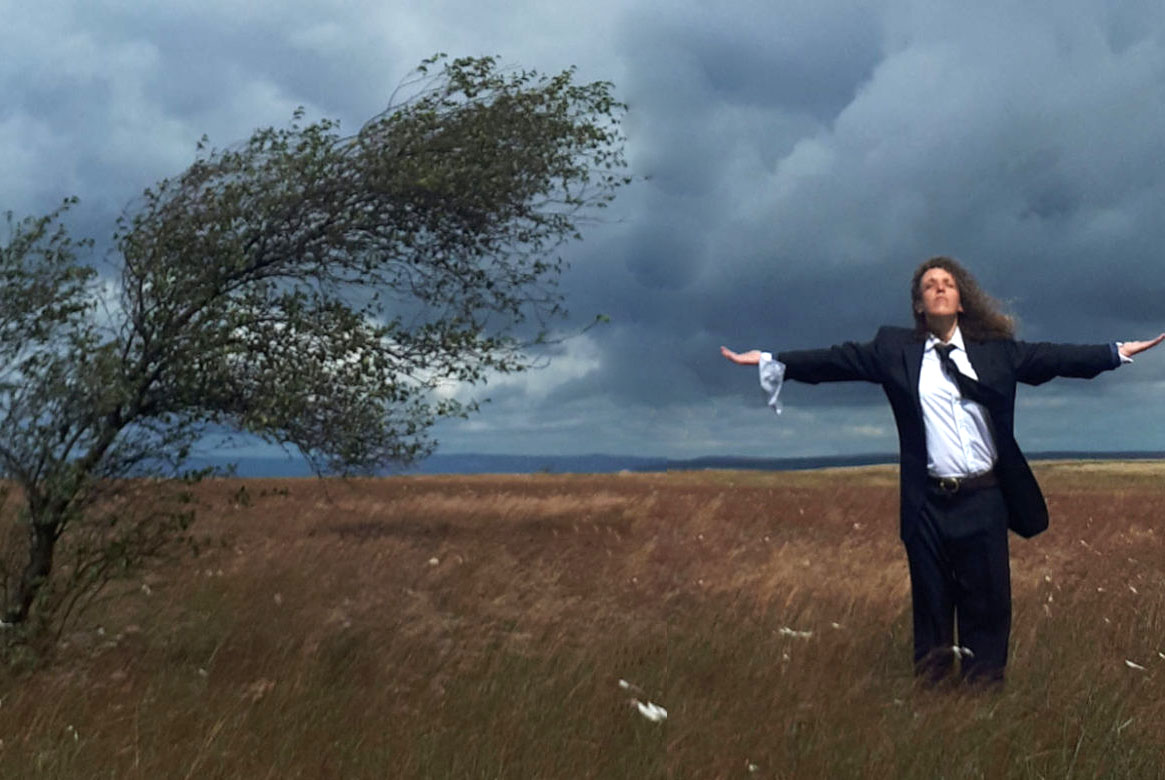
An empty stage against a backdrop of black curtains. A single chair. Debs Newbold doesn’t rely on any props or staging to set her scene. She comes onstage and simply starts to address the audience. The house lights don’t fall. Instead Newbold looks at us, meets eyes around the room, smiles, begins.
Her story opens in a great hall, filled with nobles of the court. In the centre, a raised platform. On the platform, three chairs with three young women. In front of them, their father, the focus of the tale, King Lear himself – old, wise, bearded, and greedy for an audience and for approval.
Tell me, my daughters … Which of you shall we say doth love us most / That we our largest bounty may extend…?
Newbold tells Shakespeare’s familiar tale in an exciting and unique way. Recounting the classic story in her own words, she nonetheless manages to retain a real sense of staying true to the original. She uses some of Shakespeare’s original language to great effect in some of the longer speeches, and no part is quite as striking as the long storm scene, when Lear appears to call down the thunder and rain, and she rails:
Blow, winds, and crack your cheeks! rage! blow! / You cataracts and hurricanoes, spout / Till you have drench’d our steeples…
As this type of storytelling requires a certain amount of abridgement, Newbold chooses to focus mainly on the character of Lear, erasing or abbreviating some of Shakespeare’s subplots. While the very purist of purists might take umbrage at this, I think her approach works really well, actually conveying some of the motivations of Lear and of his two eldest daughters, Goneril and Regan, more effectively that I’ve seen in other (more by-the-book) productions. Particularly poignant is how clearly Lear’s madness can be seen as the onset of dementia.
This is a tale of family and betrayal, of love and of deep-seated hatred, of how destructive it can be to have a withholding father or a ‘thankless child’. Debs Newbold pulls down the spirit of Shakespeare and uses her words to weave us a story that is as old as time, and still can captivate a twenty-first century audience on a cold Oxford evening. ★★★★☆ @BookingAround 18th January 2018

